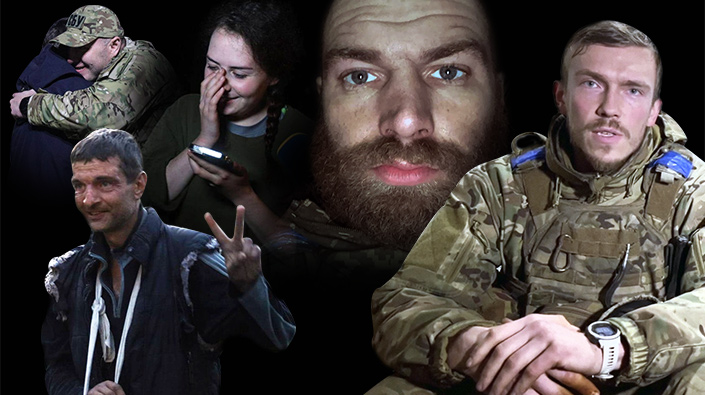Publicizing information about the circumstances of our soldiers’ stay in Russian captivity could harm both them and their comrades who remain in Russian dungeons and are waiting for an exchange. The officers of the Azov regiment, who were recently released from captivity, told this at a press conference.
According to them, comments in the media about specific situations that occurred in captivity often lead to even more torture by the Russians. For example, after the information was made public that the Azov soldiers were allowed to wear beards in captivity, the occupiers immediately shaved all the Ukrainian defenders who remained in captivity bald. According to the Azov members, this case is one of the most “innocent” among those that occurred in Russian torture chambers.
Often, any information about our soldiers being in captivity that is made public in the media or social media leads to beatings and other torture.
“Let’s say I came out of the same cell with another person, gave an interview, and he knows me by sight, and he can physically or psychologically influence my brother-in-arms because we lived together for four months,” explained Bohdan Krotevych, chief of staff of the Azov regiment.
The Coordination Headquarters for the Treatment of Prisoners of War emphasizes that drawing media attention to specific prisoners, disseminating their personal data and making them public complicates the process of returning these soldiers home. After all, in this case, the Russians realize the value of a particular defender for Ukrainian society, raise the “price” for his release, or even disrupt the exchange of prisoners altogether.
Ukraine continues to work constantly to liberate its soldiers from enemy captivity.
Source: Coordination Headquarters for the Treatment of Prisoners of War


Leave a Reply